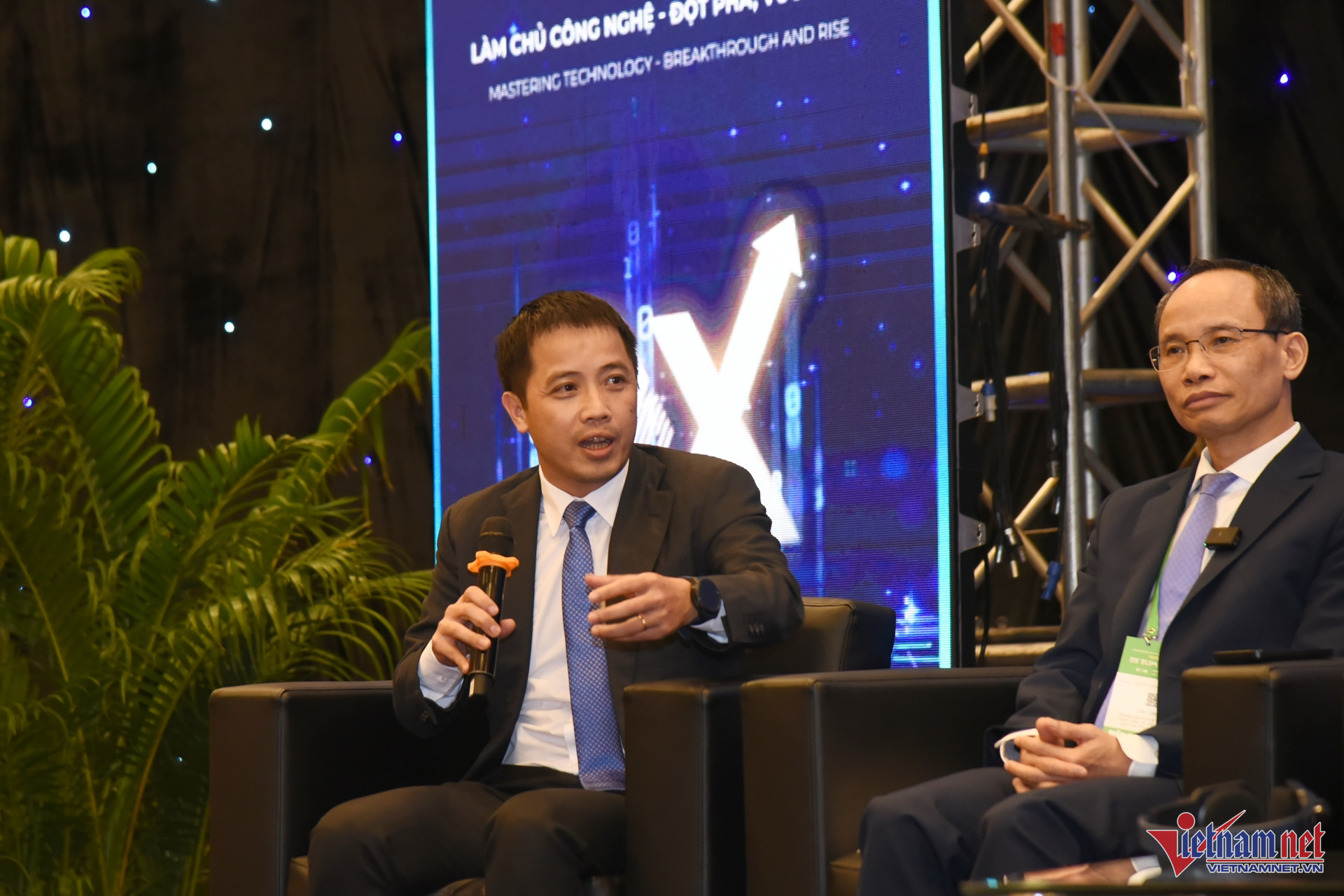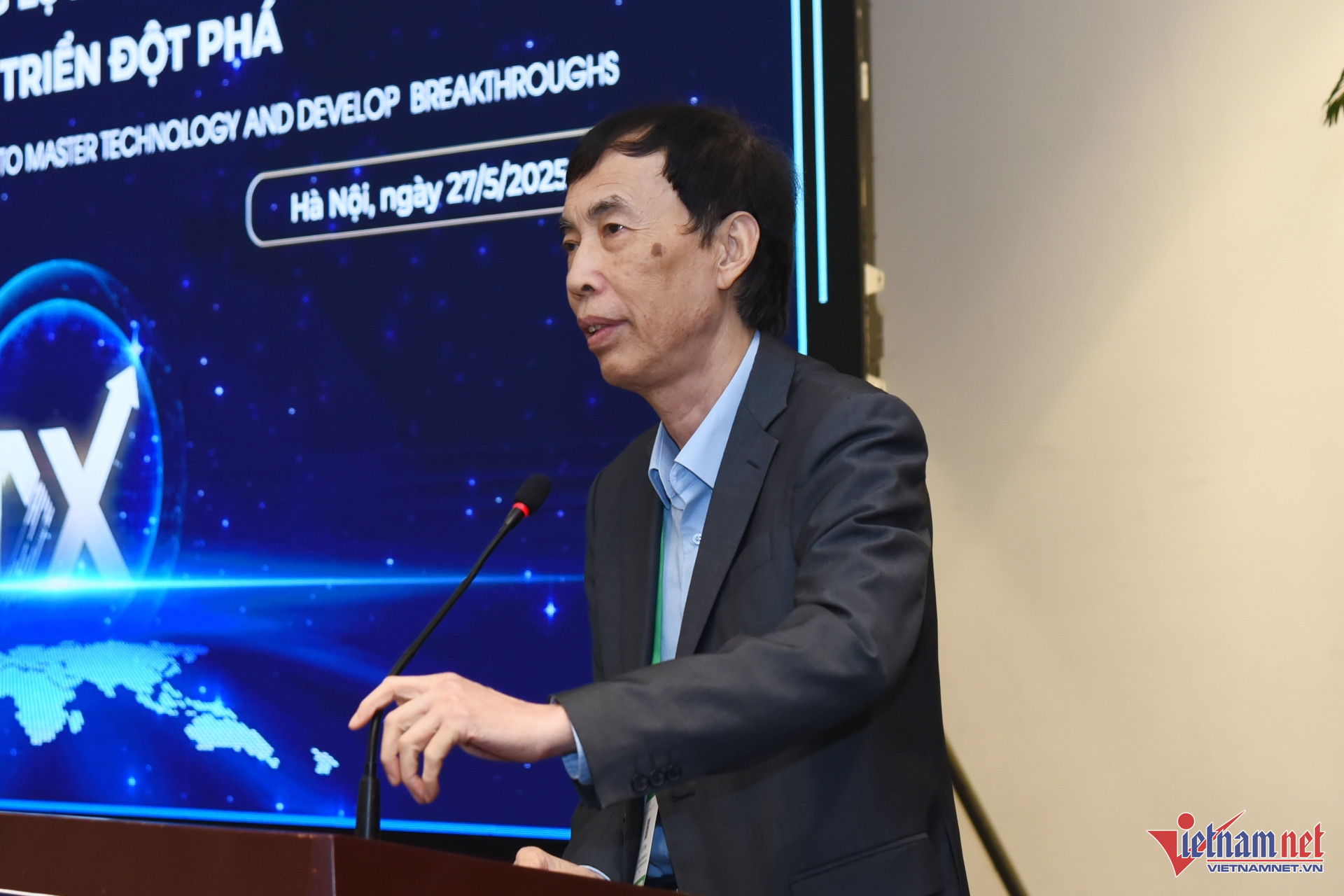At the Vietnam – Asia DX Summit 2025, Vo Tri Thanh, Director of the Institute for Brand and Competitiveness Strategy, emphasized the importance of creating demand-side incentives to accelerate the development and application of digital technologies.

During the high-level forum Vietnam – Asia Digital Transformation Summit 2025, in the panel discussion titled “Digital transformation, technology transformation – breakthrough to rise,” held on the morning of May 27, moderator Nguyen Nhat Quang, co-founder of VINASA and Director of the VINASA Institute of Science and Technology, posed a critical question: “Digital transformation and new technology adoption bring many benefits to businesses, so why do they still require state support to implement them?”
Addressing this concern, Dau Anh Tuan, Deputy Secretary General and Head of Legal Affairs of the Vietnam Chamber of Commerce and Industry (VCCI), noted that even developed countries have support programs for small and medium-sized enterprises (SMEs). Some nations have even enacted specific legislation dedicated to SMEs.
He explained that many SMEs lack readiness, awareness, and sufficient resources. Therefore, state support in digital transformation is both necessary and strategic - essentially, a form of public investment.
“Supporting SMEs in digital transformation helps them grow. In turn, the government collects more taxes. It also improves transparency and accountability in business operations, enabling better tax collection,” Tuan explained.
Speaking in the afternoon session titled “Untying bottlenecks, creating momentum for mastering technology and breakthrough development,” Vo Tri Thanh pointed out that in economics, demand is just as important as supply.
“Today, I want to stress the need for special incentives on the demand side to promote digital technology development and application,” he said.
He noted that while most policies focus on supply - such as supporting businesses with capital, technology, human resources, and talent acquisition - there has been insufficient attention to the demand side, including the market where businesses and consumers interact.
To boost demand and stimulate supply-side development, Thanh outlined four key policy solutions: creating a competitive, equitable, and transparent business environment; expanding markets through government procurement and public projects; connecting supply with demand by helping startups and SMEs bring products to market via professional investment funds; and building innovation ecosystems where universities act as startup hubs that generate real economic value.

Sharing insights from over eight years of experience in AI camera development, Doan Manh Ha, CEO of Bkav AI, said that many businesses hesitate to adopt AI due to its novelty and the difficulty in assessing its immediate effectiveness - this hesitation remains a major barrier.
Referencing global models, Ha pointed out that Singapore provides up to 70% financial support for businesses adopting AI systems, while in Japan, government and companies co-invest 50-50 in AI deployment.
“In Vietnam, we recommend implementing demand-stimulus policies - when businesses and organizations implement AI systems, the government should co-finance the deployment. State support will boost business confidence in adopting AI,” Ha proposed.
He also identified restricted access to datasets as a major bottleneck for AI camera projects. Based on this, Bkav AI recommends a “Data Opening” policy, allowing full access to non-sensitive datasets that do not compromise national security or personal privacy to aid AI development.
Additional proposals from Bkav AI included: establishing a legal framework to evaluate AI systems based on compliance with laws, cultural norms, and national interests; promoting IT workforce retraining into AI fields; incorporating AI as a key metric in the national digital transformation index; creating a review council for high-performance computing resource allocation; providing tax incentives for AI development firms; and supporting Vietnamese organizations in joining international AI associations.
Van Anh